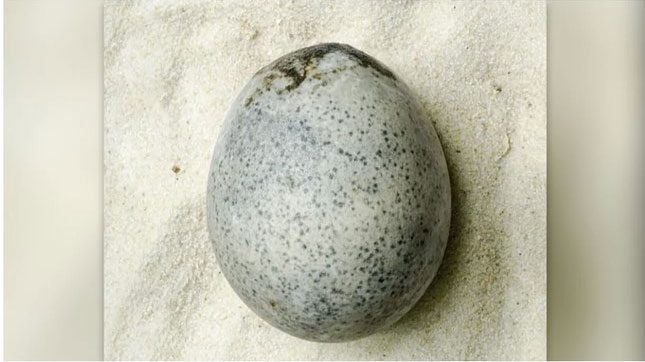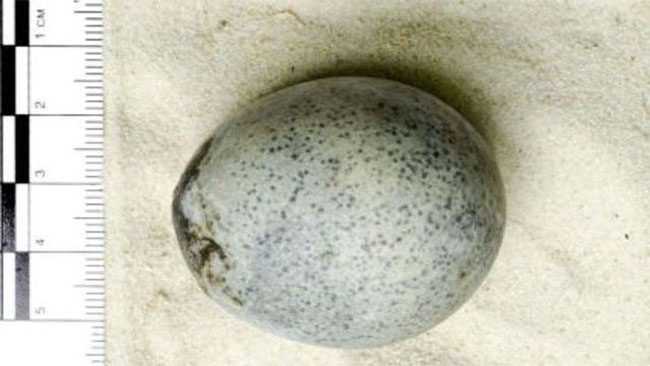A 3D scan of a 1,700-year-old egg discovered in Aylesbury, England, reveals an astonishing find: the egg still contains both yolk and egg white.
This is believed to be the only intact chicken egg found after centuries.


Scan images of the 1,700-year-old chicken egg show it still contains liquid and gas bubbles. (Photo: Oxford Archaeology)
Edward Biddulph, the senior project director at a private firm, stated: “We were genuinely surprised to see what was inside, as we might have thought it had leaked out.”
This egg is one of four eggs discovered a few years ago during an archaeological dig at a Roman site in Aylesbury, located about 30 kilometers east of Oxford in central England. Three of the fragile eggs broke upon excavation, releasing a foul smell, but the fourth remained intact.
The egg has now been scanned at the University of Kent using micro-CT imaging, where multiple X-ray scans are digitally adjusted to create a virtual 3D model. Biddulph noted: “It produces an amazing image showing the egg remains intact – which is hard to believe – still holding liquid inside, likely from the yolk and white, as well as gas bubbles.”
Roman-era Eggs
The eggs were found in a waterlogged pit at the Aylesbury site, which is being excavated by Oxford Archaeology prior to residential development. Archaeologists have discovered evidence of habitation there dating back to the Neolithic period, and the pit dates from the 3rd century AD, when England was part of the Roman Empire.
According to a statement from Oxford Archaeology, this pit was originally used for grain storage and brewing, but later it was filled with water and became a place for passersby to toss coins and other items as offerings for good luck to the gods.
Organic materials typically decay when exposed to oxygen, but many items here were preserved due to the waterlogged conditions. In addition to the eggs, the pit contained a wooden basket, leather shoes, jars, and wooden tools.
While Roman egg shells have been found before – often in graves, where eggs were thought to be offerings – this appears to be the first time a complete Roman egg has been found in England.
According to The History Blog, the only surviving intact Roman egg was discovered in the hands of a deceased infant buried near the Vatican, but it did not contain liquid, leading archaeologists to believe it symbolized rebirth after the early death of the child.
Oxford Archaeology’s statement notes that the Romans often attributed symbolic meanings to eggs; they were associated with the gods Mithras and Mercury and represented fertility and rebirth.
The intact egg from Aylesbury has been taken to the Natural History Museum in London, where experts are consulted on how to preserve it without breaking it.
Senior bird curator Douglas Russell told BBC News that the museum has a collection of mummified bird eggs excavated from tombs in Egypt, but this is the oldest preserved poultry egg he has ever seen.


















































